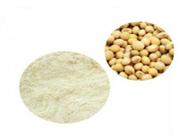*Only selected data is represented here, for a full set of specifications we refer to our Specifications sheet.
Food source:
Vitamin B12 is found naturally in a wide variety of animal proteins. Plant foods have no vitamin B12 unless they are fortified.
You can get the recommended amounts of vitamin B12 by eating a variety of the foods including:
- Organ meats (beef liver)
- Shellfish (clams)
- Meat, poultry, eggs, milk and other dairy foods
- Some breakfast cereals and nutritional yeasts
To find out if vitamin B12 has been added to a food product, check the nutrition fact panel on the food label.
The body absorbs animal sources of vitamin B12 much better than plant sources. Non-animal sources of vitamin B12 vary in their amount of B12. They are not thought to be reliable sources of the vitamin.
A lack of vitamin B12 (B12 deficiency) occurs when the body does not get or is unable to absorb the amount of vitamin that the body needs.
- Many people over age 50 lose the ability to absorb vitamin B12 from foods.
- People who follow a vegetarian or vegan diet should try to eat vitamin B12-fortified foods or talk to their health care provider about taking B12 supplements.
- People who have had gastrointestinal surgery, such as weight loss surgery, lose the ability to absorb vitamin B12.
- People who have digestive disorders, such as celiac disease or Crohn disease, may not absorb enough vitamin B12.
Low levels of B12 can cause:
- Anemia and pernicious anemia
- Loss of balance
- Numbness or tingling in the arms and legs
- Weakness
Recommendations:
The best way to meet your body's vitamin B12 needs is to eat a wide variety of animal products.
Supplemental vitamin B12 can be found in the following:
- Almost all multivitamins. Vitamin B12 is better absorbed by the body when it is taken along with other B vitamins, such as niacin, riboflavin, vitamin B6, and magnesium.
- A prescription form of vitamin B12 can be given by injection or as a nasal gel.
- Vitamin B12 is also available in a form that dissolves under the tongue (sublingual).
The Recommended Dietary Allowance (RDA) for vitamins reflects how much of each vitamin most people should receive on a daily basis. The RDA for vitamins may be used as goals for each person.
How much of each vitamin you need depends on your age and gender. Other factors, such as pregnancy and illnesses, are also important. Women who are pregnant or breast-feeding need higher amounts. Ask your provider which amount is best for you.
Main function:
Vitamin B12, like the other B vitamins, is important for protein metabolism. It helps in the formation of red blood cells and in the maintenance of the central nervous system.
* promote the formation and red blood cells regeneration, prevent anemia
* maintenance nervous system health
* promote children's growth, stomachic
* fatty acid metabolism, make fat, carbohydrate, protein is the proper use of the body
* eliminate irritability, focus your attention, improve memory and balance


 China
China


